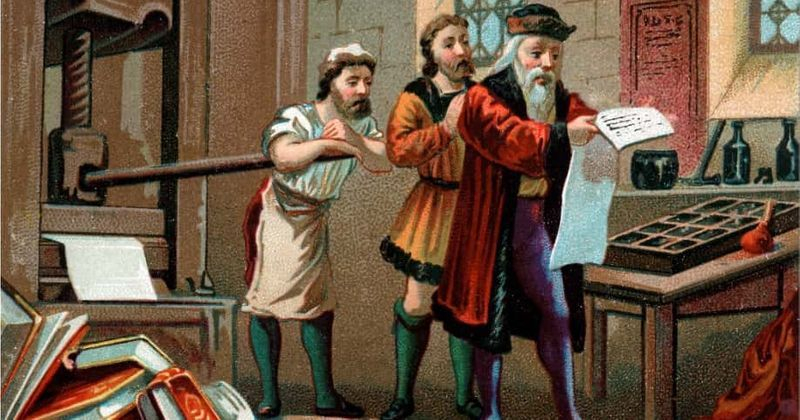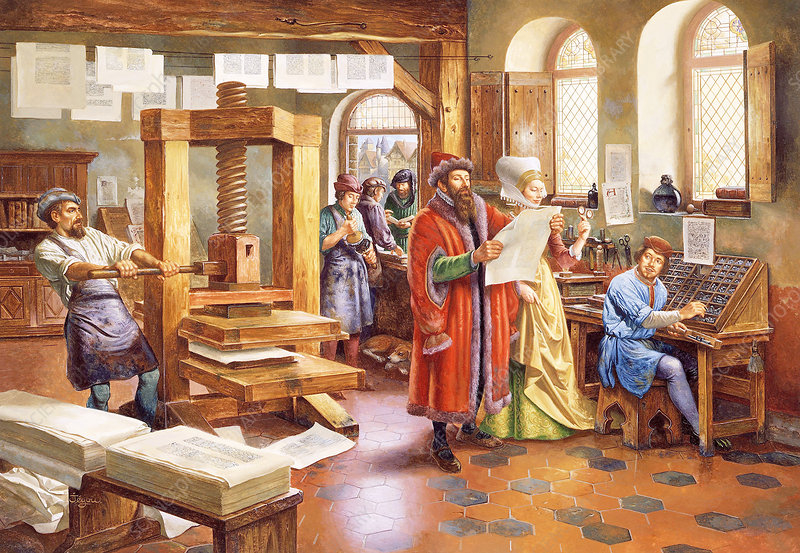Gutenberg’s family was a patrician
Patrician is a term used to describe members of Europe's aristocratic households during the time. They paid minimal or no taxes in Mainz and were given annual payments derived from the taxation of non-patriotic residents. There were severe clashes in Mainz during Johannes Gutenberg's time between the patriciate, the city upper class, and the guilds, as the unions of craftsmen were known. The guilds had been given additional rights over the ancient patrician families, and therefore more voice in the city government, according to a new council constitution. Soon after, a disagreement arose between the two parties regarding the election of a new mayor. Friele Gensfleisch, along with over a hundred other patricians, fled Mainz on short notice in 1411. Gutenberg's family left the city again two years later, in 1413, owing to hunger riots.
As the son of an aristocratic family, Johannes Gutenberg had no choice but to receive such an education, and his command of Latin shows that he did. Perhaps he traveled to the monastery of St. Viktor before coming to Mainz for this reason. In any case, Gutenberg later became a member of St. Viktor's lay brotherhood.
Gutenberg most likely stayed with relatives in Eltville when he was away from Mainz. The electoral castle in Eltville on the Rhine was finished in 1347. Afterward, until 1480, the town was the residence of the archbishops of Mainz. Gutenberg had strong ties to Eltville, a town near Mainz, thanks to his family's contacts there (his family owned a house there).












